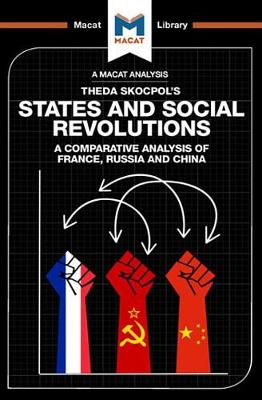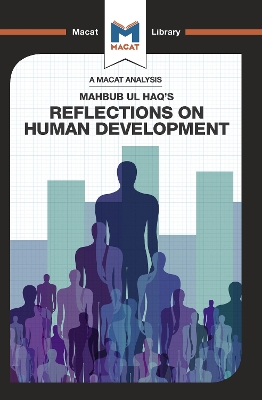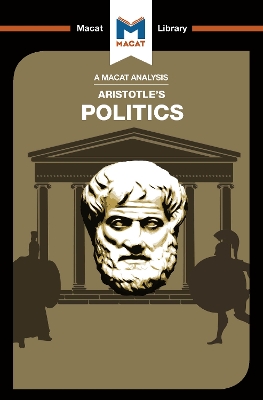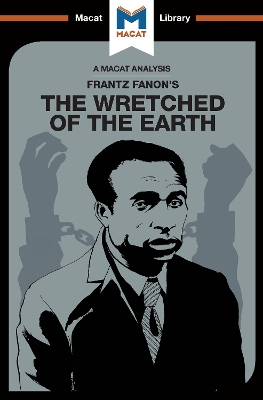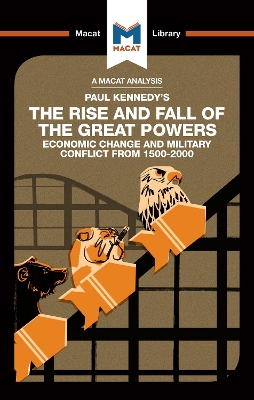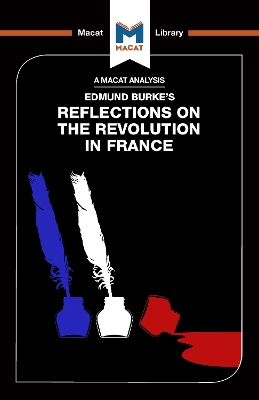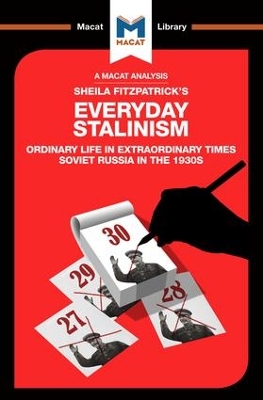The Macat Library
9 total works
Many people want to understand what revolutions are and - especially - how they come about, from the academics who study them to the states that wish to prevent (or, in some cases, provoke) them. But it is arguably the US scholar Theda Skocpol who has done most to create a viable model of revolution, and States and Social Revolutions is the work in which she sets out her intellectual stall.
Skocpol's magnum opus can be considered a classic product of the critical thinking skill of problem-solving. She assesses several different revolutions - those of France, Russia and China - and asks new, productive questions about their causes and outcomes. The answers, collectively, allow her to move beyond existing theories such as the 'voluntarist' school (which suggests that revolutionaries have agency) and the Marxist school (which sees state institutions as nothing more than a front for class interests).
Skocpol's model assumes that states are autonomous bureaucratic institutions, which act in their own interests - a fundamental re-imagining based on fresh interpretations of the evidence. Her analysis extends beyond the causes of revolution to their consequences, and her argument that the revolutionary state that survives is the one that successfully implements a far-reaching program of reform helps to explain not only why the three revolutions she studied have proved enduringly influential, but also why hundreds of others, less successful, are barely remembered today.
An Analysis of Mahbub ul Haq's Reflections on Human Development
by Riley Quinn
What is the ultimate goal of any human society? There have been many answers to this question. But by producing a series of notably well-structured arguments, economist Mahbub ul Haq’s Reflections on Human Development persuaded readers that the goal should be defined quite simply as the requirement that each society improve the lives of its citizens.
If this is the agreed aim, Haq continues, then economic development should be designed to support human development. His well-structured reasoning helped development economists recalibrate much of what had previously been regarded as self-evident; that economic productivity was the main barometer of social well being. The work had a profound effect, and Haq’s thinking helped produce a new understanding of what ‘development’ actually meant.
Haq conscientiously mapped out arguments and counter-arguments to persuade readers that development did not simply mean an increase in productivity, but rather an increase in human development – the capability of people to live the lives they want to. By bringing the abstract back to the concrete, Haq reevaluated the neoliberal reasoning that suggested economic development necessarily benefitted everybody. And, by virtue of his strong command of reasoning, Haq showed how economic development provided no guarantees that rich people would spend money on improving health, education or other human development outcomes for the poor.
Aristotle remains one of the most celebrated thinkers of all time in large part thanks to his incisive critical thinking skills. In Politics, which can be considered one of the foundational books of the western political tradition, the focus is on problem-solving, and particularly on the generation and evaluation of alternative possibilities.
Aristotle's aim, in Politics, is to determine how best to organize a society. He looks in turn at several different type of organization - kingship, oligarchy and the polity, or rule in the hands of many - and evaluates the arguments for each in turn. But he takes the exercise further than his predecessors had done. Having concluded that rule by the aristocracy would be preferable, since it would mean rule by citizens capable of taking decisions on behalf of the society as a whole, Aristotle subjects his solution to a further checking process, asking productive questions in order to make a sound decision between alternatives.
Politics was ground-breaking in its approach. Unlike previous thinkers, Aristotle based all his ideas on a practical assessment of how they would play out in the real world. Ultimately, Aristotle argues, the problem of self-interest means that the adoption of a mixed constitution - one based on carefully considered laws which aims at a balance of power between the people and the elite - is most likely to bring eudaemonia (happiness). It's a conclusion firmly based on careful evaluation (not least the process of judging the adequacy of arguments) and the product of outstanding problem-solving skills.
Frantz Fanon is one of the most important figures in the history of what is now known as postcolonial studies – the field that examines the meaning and impacts of European colonialism across the world.
Born in the French colony of Martinique, Fanon worked as a psychiatrist in Algeria, another French colony that saw brutal violence during its revolution against French rule. His experiences power the searing indictment of colonialism that is his final book, 1961’s The Wretched of the Earth. Fanon’s account of the physical and psychological violence of colonialism forms the basis of a passionate, closely reasoned call to arms – a call for violent revolution. Incendiary even today, it was more so in its time; the book first being published during the brutal conflict caused by the Algerian Revolution. Viewed as a profoundly dangerous work by the colonial powers of the world, Fanon’s book helped to inspire liberation struggles across the globe.
Though it has flaws, The Wretched of the Earth is above all a testament to the power of passionately sustained and closely reasoned argument: Fanon’s presentation of his evidence combines with his passion to produce an argument that it is almost impossible not to be swayed by.
Paul Kennedy owes a great deal to the editor who persuaded him to add a final chapter to this study of the factors that contributed to the rise and fall of European powers since the age of Spain's Philip II. This tailpiece indulged in what was, for an historian, a most unusual activity: it looked into the future. Pondering whether the United States would ultimately suffer the same decline as every imperium that preceded it, it was this chapter that made The Rise and Fall of the Great Powers a dinner party talking point in Washington government circles. In so doing, it elevated Kennedy to the ranks of public intellectuals whose opinions were canvassed on matters of state policy.
From a strictly academic point of view, the virtues of Kennedy's work lie elsewhere, and specifically in his flair for asking the sort of productive questions that characterize a great problem-solver. Kennedy's work is an example of an increasingly rare genre - a work of comparative history that transcends the narrow confines of state- and era-specific studies to identify the common factors that underpin the successes and failures of highly disparate states.
Kennedy's prime contribution is the now-famous concept of 'imperial overstretch,' the idea that empires fall largely because the military commitments they acquire during the period of their rise ultimately become too much to sustain once they lose the economic competitive edge that had projected them to dominance in the first place. Earlier historians may have glimpsed this central truth, and even applied it in studies of specific polities, but it took a problem-solver of Kennedy's ability to extend the analysis convincingly across half a millennium.
An Analysis of Edmund Burke's Reflections on the Revolution in France
by Riley Quinn
Edmund Burke's 1791 Reflections on the Revolution in France is a strong example of how the thinking skills of analysis and reasoning can support even the most rhetorical of arguments. Often cited as the foundational work of modern conservative political thought, Burke's Reflections is a sustained argument against the French Revolution. Though Burke is in many ways not interested in rational close analysis of the arguments in favour of the revolution, he points out a crucial flaw in revolutionary thought, upon which he builds his argument. For Burke, that flaw was the sheer threat that revolution poses to life, property and society.
Sceptical about the utopian urge to utterly reconstruct society in line with rational principles, Burke argued strongly for conservative progress: a continual slow refinement of government and political theory, which could move forward without completely overturning the old structures of state and society. Old state institutions, he reasoned, might not be perfect, but they work well enough to keep things ticking along. Any change made to improve them, therefore, should be slow, not revolutionary.
While Burke's arguments are deliberately not reasoned in the 'rational' style of those who supported the revolution, they show persuasive reasoning at its very best.
An Analysis of Sheila Fitzpatrick's Everyday Stalinism
by Victor Petrov and Riley Quinn
How was the Soviet Union like a soup kitchen? In this important and highly revisionist work, historian Sheila Fitzpatrick explains that a reimagining of the Communist state as a provider of goods for the 'deserving poor' can be seen as a powerful metaphor for understanding Soviet life as a whole. By positioning the state both as a provider and as a relief agency, Fitzpatrick establishes it as not so much a prison (the metaphor favoured by many of her predecessors), but more the agency that made possible a way of life.
Fitzpatrick's real claim to originality, however, is to look at the relationship between the all-powerful totalitarian government and its own people from both sides - and to demonstrate that the Soviet people were not totally devoid of either agency or resources. Rather, they successfully developed practices that helped them to navigate everyday life at a time of considerable danger and multiple shortages. For many, Fitzpatrick shows, becoming an informer and reporting fellow citizens - even family and friends - to the state was a successful survival strategy.
Fitzpatrick's work is noted mainly as an example of the critical thinking skill of reasoning; she marshals evidence and arguments to deliver a highly persuasive revisionist description of everyday life in Soviet time. However, her book has been criticized for the way in which it deals with possible counter-arguments, not least the charge that many of the interviewees on whose experiences she bases much of her analysis were not typical products of the Soviet system.
